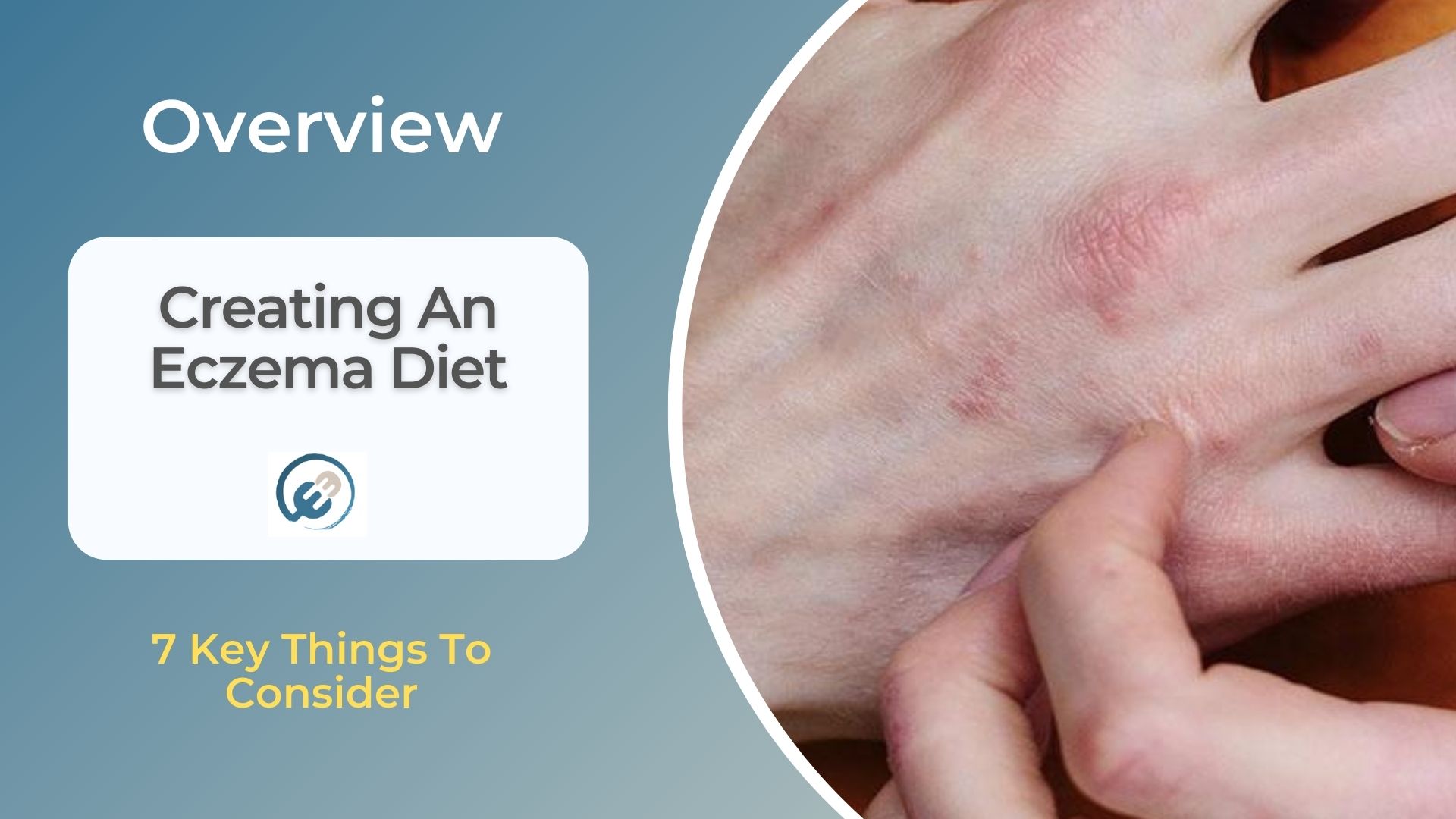Eczema is an inflammatory skin condition which can cause skin irritation, blisters, and itchy rashes. It is most common in children younger than 2, but it may also occur in older children and adults.
Although its cause isn’t clearly understood at this point, it is known that hereditary and environmental triggers might play a role in its development.
While eczema can often be persistent, adapting your diet may make a difference to your symptoms. For example, there might be specific foods that can help you reduce flares.
This guide is designed to show you how you can maintain an eczema-friendly diet and find out what works best for your body.
1 – Remove Food Triggers
In some cases, eczema might be the result of the interplay between an overactive immune system and certain triggers. One of these triggers might be food. So removing any food triggers you may have could be key for overall symptom management.
Track food triggers is by keeping a food journal so you can record how food makes you feel. If you’re looking for a great food journal app, check out our Food Journal App here.
Keep in mind that eating specific foods won’t cause eczema, but rather promote flare-ups if you already have the condition. However, it can be a challenge to determine which foods trigger your symptoms. Most of the time, it is about eliminating and reintroducing different foods back into your diet by focusing on one food at a time.
2 – Get Tested For Food Allergies
Food allergies might be a trigger, which can make symptoms worse. So you might need to identify one or more suspect foods. For example, young children with severe atopic eczema are more likely to have food sensitivity as a trigger factor.
This makes it crucial to learn more about the most common food allergies and consult your doctor, if you believe a food is making your child’s symptoms worse. Food allergies should be confirmed by a specialist who can recommend a suitable eczema-friendly diet.
You may also identify alternative remedies and treatments, that can help ease symptoms of eczema.
3 – Incorporate Probiotics
The health of your digestive tract can help you support your immune system, which can have an effect on those with eczema.
To develop a healthy immune system, you will need to have a diverse range of bacteria in the gut. There are specific strains of probiotics, which can be especially useful in building a healthy immune system. You may want to incorporate probiotic-rich foods into your diet, such as sourdough bread, miso soup, soft cheeses, kefir, tempeh, and unpasteurised sauerkraut.
However, you should also consider the food allergies that you have been diagnosed with, as even foods that are considered to be eczema-friendly might trigger a flare-up.
4 – Follow An Anti-Inflammatory Diet
Following an anti-inflammatory diet can be beneficial, as inflammation plays a key role in developing eczema. For example, if your diet is high in sugar or refined carbohydrates, this can elevate insulin levels and promote inflammation.
Another way to achieve an anti-inflammatory effect is to ensure the right balance of fats in your diet. This means that if you don’t have any allergies, you can include oily fish, seafood, seeds, nuts, and flax oil. It’s also recommended to eat less saturated fats by cutting down on dairy and red meat.
5 – Use Manuka Honey
Manuka honey can help you reduce flare-ups, as it contains antibacterial, antifungal, and antiseptic properties, which can strengthen your immune system.
Additionally, manuka honey might stimulate processes that are needed for tissue healing and wound healing. It can also inhibit the growth of harmful bacteria that are typically found on eczema-prone skin. You may want to eat a small amount of manuka honey every day or apply it topically.
In general, skin care products might contain chemicals that can result in eczema flare-ups. This means that you should avoid products with ingredients, such as lanolin, propylene glycol, and talc.
6 – Pay Attention To Your Vitamin Intake
Another aspect that can help you keep your skin condition under control is to ensure a good balance of vitamins and minerals. A few vitamins and minerals are especially helpful for people with eczema.
For example, you can incorporate zinc, which is found in foods like pumpkin seeds, dark chocolate, and seafood.
Also, vitamin C can be obtained from brightly-colored fruit and vegetables. You can also include Vitamin E by including foods into your diet, such as almonds, pine nuts, avocados, and sunflower seeds. In addition, Vitamin D is best absorbed from natural sunlight during the summer months.
7 – Look At Foods To Avoid
When creating an eczema-friendly diet, there are certain foods that you may want to avoid for better results. For instance, red and processed meats can be damaging to the body due to their high saturated fat content, which is commonly associated with inflammation.
Other foods that you may want to avoid include coconut and palm oil, as well as whole-fat dairy products.
Additionally, you should limit refined carbohydrates, which can be found in white bread, pasta, crackers, and pizza dough. Finally, be aware of added sugars found in sodas, energy drinks, and salad dressings.



